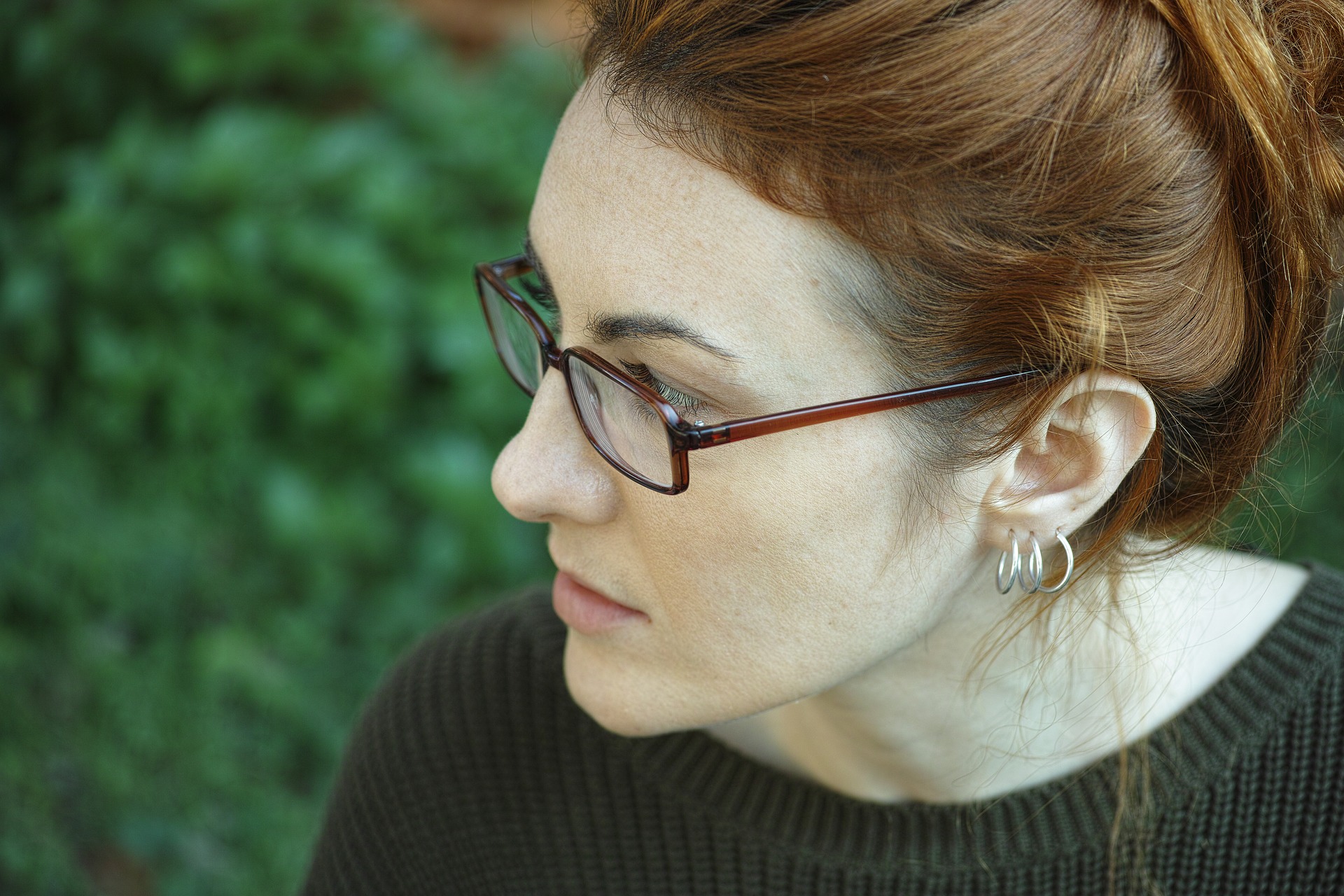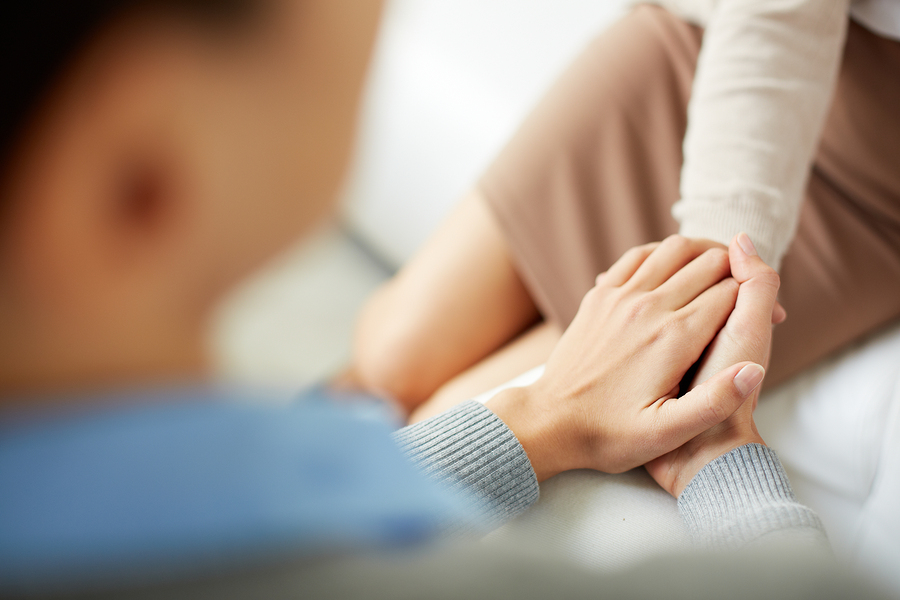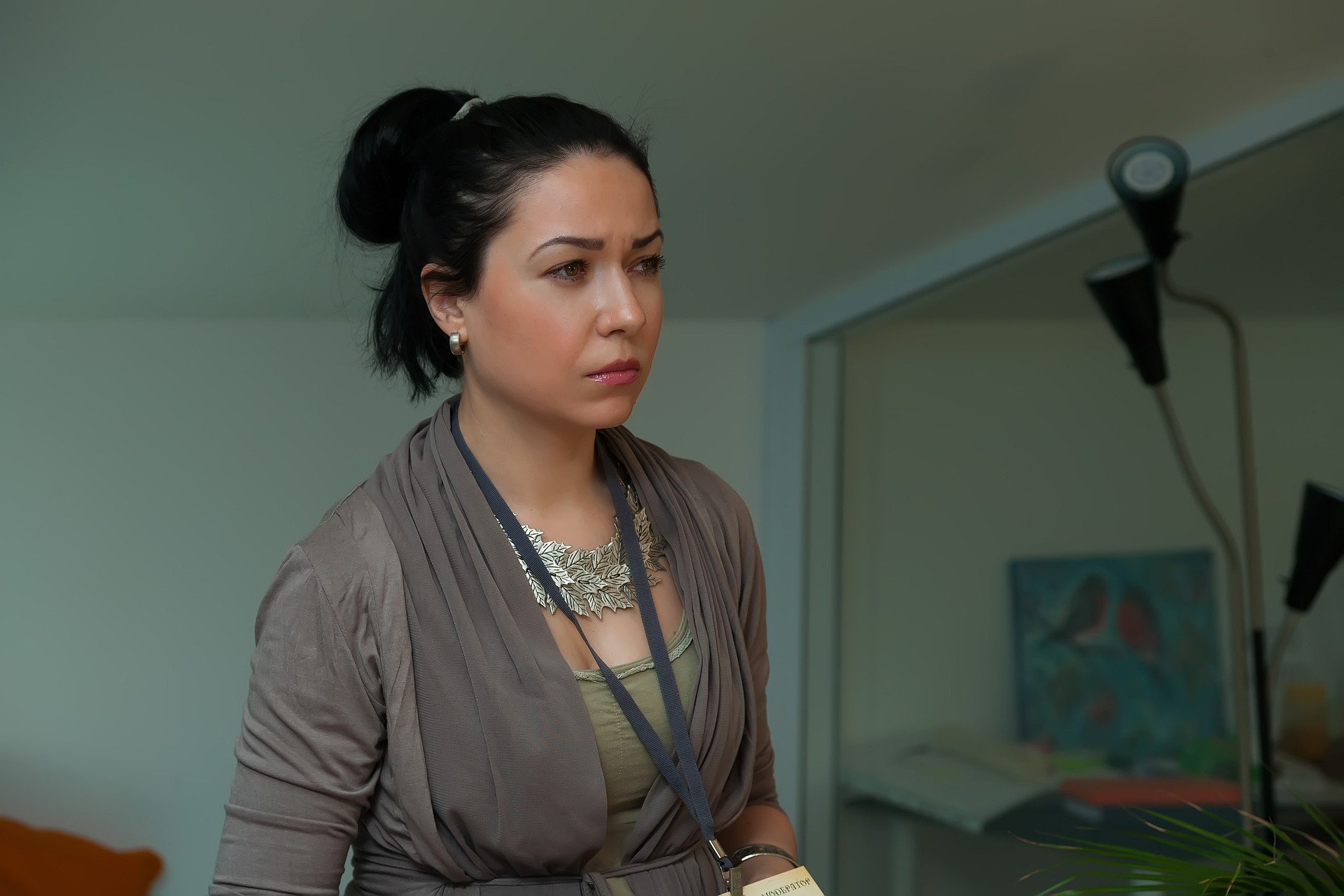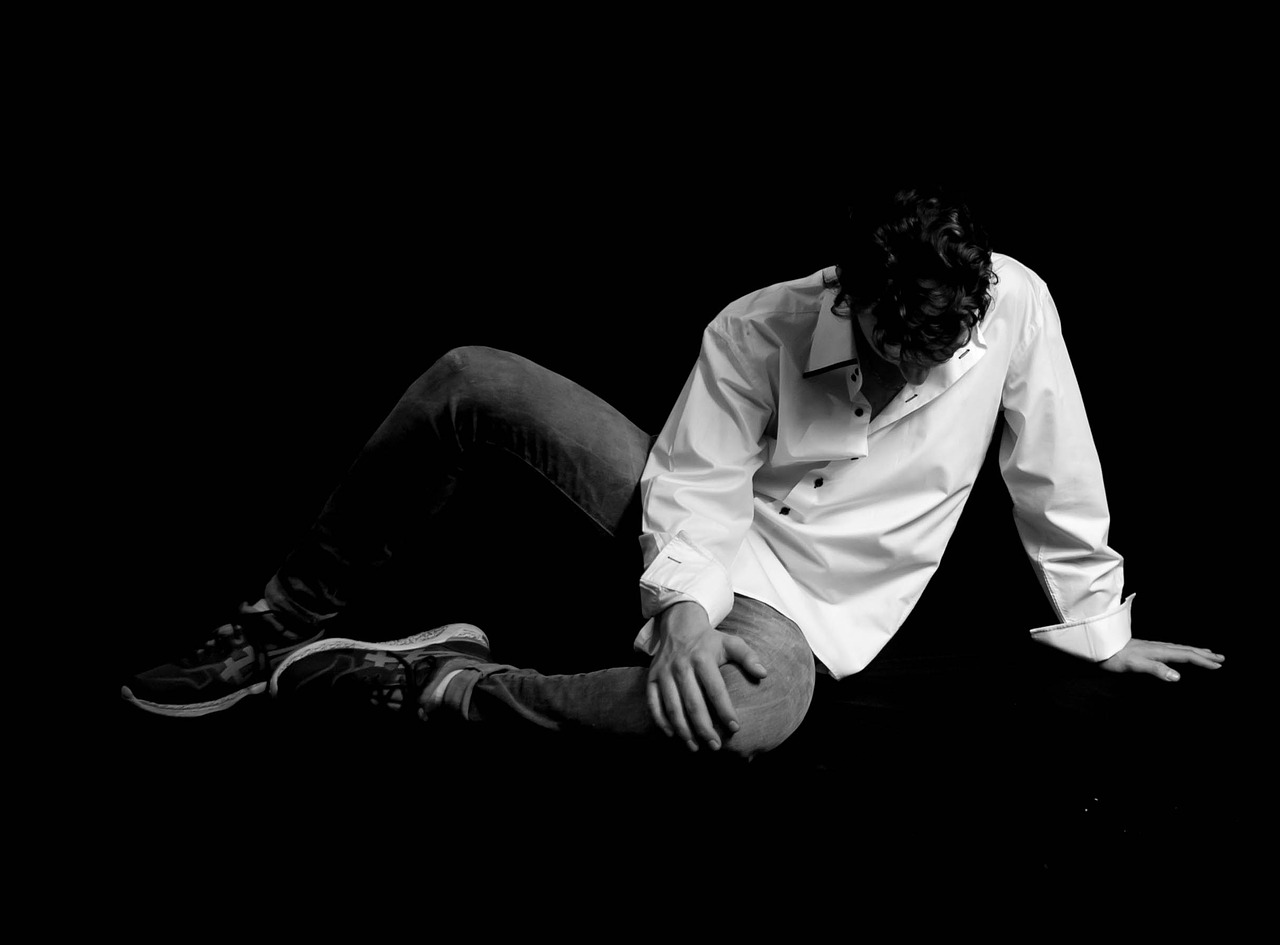Finding the right treatment program for your opioid addiction can be a difficult task, which is why reaching out for help can make it much easier. Call 800-934-1582(Who Answers?) to learn about your different options for addiction treatment as well as to find the programs and facilities that will be most beneficial to you.
Consider Your Needs
According to the National Institute on Drug Abuse, “Effective treatment attends to multiple needs of the individual, not just his or her drug abuse.”
In order to find the right rehab program that will allow you to recover in the best, safest way, it is important to consider all the needs you may have, including
- Medical: Do you need 24-hour medical care? Are you convalescing from a physical issue that requires further treatment?
- Psychological: Do you have a co-occurring mental disorder?
- Social: Does your family want to be able to visit you? Could you benefit from social therapy or family behavioral therapy?
- Vocational: Did you lose your job as a result of your substance abuse? Do you require help in finding another?
- Legal: Have you been arrested or suffered other legal consequences? Do you need help managing these issues?
- Financial: Did your drug abuse lead you to financial problems? Do you require time with a financial consultant or help paying for your rehab?
Your treatment shouldn’t just pertain to the physical and psychological aspects of your substance abuse but to any issues that you are experiencing in other parts of your life.
Your gender, age, ethnicity, culture, sexuality, and any other important aspects of your situation to which treatment must be appropriate should also be considered.
Do you need to be in a rehab facility with only other women, or will your treatment require a Spanish speaking staff? Once you have determined all of your needs, you will be able to start searching for a rehab program that will benefit you.
Ask Questions
Call 800-934-1582(Who Answers?) to find rehab centers that will cater to the needs you have taken time to determine. Once we match you with a potential treatment facility that is appropriate to those needs, it is important to call the facility specifically to ask questions, such as:
- When was your program established?
- What are your success rates with opioid addicts?
- Do you provide the treatment options I will require, including the medications and behavioral therapies associated with opioid addiction treatment? (NIDA)
- How long does your program generally last?
- What will be the cost of your program?
- Will you take my insurance plan?
- Do you have financing options for patients?
- Can my family and friends visit me in treatment?
- What should I bring to the facility? What shouldn’t I bring?
If the answers to your questions are satisfactory and the program still seems that it will be able to cater to your specific needs as a patient, you have found the right treatment facility for your safe and speedy recovery.
Seek Narcotic Addiction Treatment Now
Narcotic addiction, whether prescription or illicit, is extremely dangerous and will require you to attend a professional rehab program. We can help you find the right program for your treatment today.
While many people do attempt to quit using narcotics without treatment, you will require help from trained healthcare professionals. Whether you have been abusing narcotics or not, dangerous consequences could occur if you attempt to stop on your own. Call 800-934-1582(Who Answers?) to find safe, reliable treatment options, detox, and rehab centers today.
The Dangers of At-Home Detox
The first thing you will have to do when putting a stop to your narcotic use is to go through detox. Some individuals attempt to do so at home, partially because, according to the National Library of Medicine, “The symptoms are very uncomfortable but are not life-threatening.”
The severity of the pain and discomfort associated with narcotic withdrawal can sometimes lead to relapse, and those individuals who do not prepare for the intensity of these effects are extremely likely to return to drug abuse.
This is one of the strongest reasons why attempting to quit using narcotics without professional treatment is dangerous. Even if you were not abusing these drugs, you will still likely encounter withdrawal symptoms if you have been taking them for more than a few weeks. Seeking professional detox treatment is absolutely necessary to a safe withdrawal from opioids.
Recovery Without Addiction Treatment?
Some people and programs boast that professional rehab is not necessary for recovery, but it is currently the safest and most effective means of treatment available. Evidence-based approaches like medication and behavioral therapy help patients like you create real and lasting changes in their thoughts and behaviors toward addiction.
According to the National Institute on Drug Abuse,
Medications are used to:
- Manage symptoms of withdrawal
- Minimize cravings that could lead to relapse
- Re-establish the normal functions of the brain
- Treat co-occurring mental disorders
Behavioral therapies are used to:
- Modify patients’ attitudes and behaviors toward drug abuse that are currently dangerous or problematic
- “Increase healthy life skills”
- Treat co-occurring mental disorders
- Teach patients to recognize and avoid triggers
- Teach patients to cope with cravings and stress
These benefits actually create extremely positive results when it comes to addiction, and those who attend professional rehab will not gain these advantages for their long-term recovery. That stated, it is easy to see why it is much more beneficial to attend a professional treatment program for opioid addiction than to attempt to quit without this kind of personalized medical care.
Can I Quit Opioids Without Professional Treatment?
It is never safe or advisable to attempt to quit opioid use or abuse without professional treatment. Withdrawal alone is dangerous, and without the lessons learned and the benefits gained from addiction treatment, one has a much lower chance of recovery.
Let us help you find the right treatment program for your specific needs. Call 800-934-1582(Who Answers?) today to discuss your options and to find the safest, most beneficial rehab center for you. We can also help you find out if a particular facility will take your insurance plan and answer any other questions pertaining to your recovery.
The abuse of narcotics can quickly lead to addiction, and this issue will likely not dissipate without attending professional rehab as treatment. Below are 10 effects of opioid addiction for which you should seek treatment immediately. Call 800-934-1582(Who Answers?) to find safe, reliable rehab programs that will cater to you.
1. Physical Dependence
Physical dependence manifests as painful and uncomfortable withdrawal symptoms when an addicted individual attempts to stop using opioids or cannot get ahold of them. This can become very dangerous and, without treatment, can lead to relapse, particularly because the symptoms of withdrawal can be so unbearable that people turn back to the drug.
2. Psychological Dependence
According to the Drug Enforcement Administration, “Long after the physical need for the drug has passed, the addict may continue to think and talk about using drugs and feel overwhelmed coping with daily activities.”
These cravings for narcotics and the apathy toward other activities that used to matter to you will make it extremely difficult to end your substance abuse on your own.
3. Constipation
Constipation is one of the most complained of side effects associated with narcotic use. However, for those who abuse these drugs, there is no cure, and often, individuals will bear with the issue rather than stop using narcotics in high doses.
4. Nausea
Nausea is another uncomfortable, physical symptom of opioid addiction. Similarly, it can only be relieved if the individual stops abusing these drugs.
5. Overdose
As stated by the National Institute on Drug Abuse for Teens, “Taking just one large dose could cause serious breathing problems that lead to death.” You endanger yourself more and more with the possibility of overdose as long as you continue to abuse narcotics.
6. Tolerance
Over time, addicts will start to realize that the same amount of the drug that used to get them high no longer works. As a result, someone who does not seek treatment will merely continue to abuse these drugs at higher and higher doses.
7. Heroin Abuse
Many individuals who begin taking prescription opioids recreationally and become addicted to these medications switch to heroin in order to combat tolerance and because heroin is cheaper. This possible outcome could endanger you greatly.
8. Relationship Problems
Addiction often destroys longstanding relationships, whether they be family members, friends, or significant others. If you refuse to seek treatment when you know you should, your loved ones may not stand by and watch you continue to abuse narcotics.
9. Work Problems
Many people get fired from their jobs as a result of their opioid addictions. And with heroin use being up to a $200 a day habit, financial issues usually aren’t far behind (Center for Substance Abuse Research).
10. Legal Problems
Your addiction can lead you to do many problematic things, some of which could get you in trouble with the law. Driving under the influence, violent outbursts, and stealing prescriptions to obtain more drugs are all acts caused by your substance abuse that could get you arrested.
Seek Addiction Treatment Now
If any of these issues are already occurring in your life, seek treatment right away by calling 800-934-1582(Who Answers?) . It is better to reach out now before the consequences of your addiction become worse.
If you have been concerned that your loved one may be abusing narcotics to the point of addiction, below are some signs that you should get them into treatment right away. Call 800-934-1582(Who Answers?) now to find rehab centers that will help your loved one end their abuse of narcotics as soon as possible.
1. Secretive Behavior
According to the National Library of Medicine, “Secretive behavior to hide drug use” is one of the most common symptoms of addiction. Your loved one likely knows their opioid abuse is dangerous and that the important people in their life do not approve. Still, they will continue abusing narcotics because they are no longer in control of this act.
2. Physical Side Effects
It is common for heavy opioid abusers to show signs of or experience:
- Sleepiness or drowsiness
- Confusion
- Constipation
- Nausea and vomiting
- Itching
These side effects can become serious over time and likely will not end until your loved one gets the treatment they need.
3. Apathy
Drug addicts often become apathetic toward the other activities and aspects of their lives that used to be important to them. If you see your loved one begin to lose interest in all the things that were once important to them, this is a strong sign of addiction.
4. Withdrawal Symptoms
According to the National Institute on Drug Abuse for Teens, “opioid withdrawal can cause:”
- Restlessness
- Muscle and bone pain
- Sleep problems
- Diarrhea
- Vomiting
- Cold flashes with goose bumps
- Involuntary leg movements
If your loved one begins to experience these issues, which are often similar to an extremely bad case of the flu, they are withdrawing from opioids and will require professional detox treatment immediately.
5. Work or School Problems
Your loved one may
- Start to miss school or work regularly
- Become reprimanded often for late work, decreased performance, etc.
- Get fired, suspended, or expelled for abusing drugs at work or school or for another issue associated with their substance abuse
This is a severe sign that something is wrong and that their drug abuse is no longer controlled, as it is bleeding into their professional life. They will require long-term, professional addiction treatment in order to learn better behaviors that will help them avoid issues like this in the future.
6. Drug Paraphernalia
The abuse of opioids is associated with certain types of paraphernalia. You may want to search your loved one’s apartment, home, or bedroom for these. For example, finding empty pill bottles as well as blank prescription pads can point to a prescription narcotic addiction. Finding tubing, needles, spoons, and pieces of foil can point to heroin abuse.
7. Mood Swings
Abnormal moods or mood changes that seem to occur out of nowhere are a strong sign of opioid abuse. Like every other aspect of the individual’s life, narcotics can affect mood negatively, causing severe issues for the addict and you, their loved one.
Find Addiction Treatment Now
Call 800-934-1582(Who Answers?) to locate safe, reliable rehab centers where your loved one can recover from narcotic abuse and addiction. You both deserve to lead happier, healthier lives, and with our help, you can find a program that will allow your loved one to make a change to their behavior that will benefit both them and you.
Behavioral therapy is an extremely beneficial part of narcotic addiction treatment. Call 800-934-1582(Who Answers?) to find rehab centers that will incorporate medication, behavioral therapy, and holistic methods to allow you to recover from long-term narcotic abuse.
Behavioral Therapy as a Narcotic Abuse Treatment
There are many types of behavioral therapy programs, including:
- Cognitive-behavioral therapy (CBT)
- Contingency management
- Family therapy
- 12-step facilitation therapy
- Group therapy
Each of these programs has its own focuses and benefits, and a well-rounded treatment program will often use more than one of them at a time. According to the National Institute on Drug Abuse, behavioral therapies help patients in many ways, teaching them better behaviors and more effective life skills in order to avoid relapse and continue a safe and well-adjusted recovery.
Controlling Your Cravings and Avoiding Your Triggers
CBT is used more often than almost any other treatment program for addiction rehab, simply because it can easily be adapted to any substance of abuse, any gender patient, and any age group. According to the NIDA, “A central element of CBT is anticipating likely problems and enhancing patients’ self-control by helping them develop effective coping strategies.”
This encompasses the important lesson of learning how to avoid any triggers that may lead to cravings for substance abuse. Patients must be able to recognize these triggers in order to steer clear of them as much as possible, which can be achieved through talk therapy and the creating and solving of possible scenarios while in the safe space of treatment.
There will still be times in your life where you will not be able to anticipate your triggers or avoid experiencing cravings. This is often the result of stress or even a possible co-occurring mental disorder.
Patients will learn to control both issues through the same creation of scenarios and discussion of possible effective behaviors that will help them avoid relapse.
Communicating with Others
Many addicts have difficulty communicating with friends and family members as well as any other individuals. Whether this is a recent issue or something that has always plagued you, you can learn how to better communicate with those around you through group therapy, family therapy, and other treatments that focus on relationships and dialogue.
Seeing Your Substance Abuse in a New Light
After abusing narcotics for a long time, your attitude toward substance abuse will likely be skewed by issues you have trouble controlling, such as cravings, triggers, and past experiences.
Although these can be modified and treated in their own right, you will be able to learn how to view your substance abuse in a new way, one that is healthier and can help you create a safer and more beneficial attitude, which will allow you to avoid relapse more easily.
Behavioral Treatment Can Help
In behavioral therapy programs, you will learn a number of important lessons that cannot all be listed here. These therapeutic treatments will help you change your attitude, beliefs, and behaviors toward substance abuse and the other things and people in your life, which will strongly affect your recovery and allow you to be much safer and more successful in the long run.
Call 800-934-1582(Who Answers?) now to find rehab centers that will cater to your needs and help you create an effective, long-term recovery from narcotic abuse.
The abuse of pain medication is one of the most dangerous medical issues plaguing our country today. Narcotic abuse can create a number of severe physical and psychological problems as well as death when taken in extremely high doses.
If you have been abusing your narcotic prescription or someone else’s, you absolutely must seek help right away. Call 800-934-1582(Who Answers?) to find safe and reliable facilities where you can attend professional rehab for pain medication abuse.
The Epidemic of Pain Medication Abuse
In the United States today, pain medication misuse has become extremely dangerous and incredibly prevalent. Whether a person is taking higher doses of their own prescription, using someone else’s medication, or buying or stealing the drug, addiction is a very likely outcome, as is deadly overdose. And the problem is only getting worse.
According to the National Institute on Drug Abuse, “We are seeing an increase in the number of people who are dying from overdoses, predominately after abuse of prescribed opioid analgesics.
This disturbing trend appears to be associated with a growing number of prescriptions in and diversion from the legal market.” The severity of this abuse and its widespread nature, however, are only two of the reasons why you should seek professional help for pain medication abuse.
The Side Effects of Prescription Opioid Abuse
The recreational or high-level abuse of prescription pain medications is not something you merely quit and never consider again. Once you have begun using these drugs in higher doses than prescribed or for reasons different than prescribed, they begin immediately to work on your brain, changing the way it experiences pleasure and its ability to control your substance abuse.
Eventually, you will no longer be able to control this behavior at all, an issue known as addiction. You will not be able to gain back your control without professional addiction treatment.
In addition, long-term prescription opioid abuse can lead to a number of other issues, including:
- Depression
- Sleep problems
- Confusion
- Stomach problems
- Constipation
- Apathy
- Drug-seeking behavior
- Headaches
- Heart problems
- Seizures
- Low blood pressure
When taken in extremely high doses, these drugs can also cause respiratory depression, the effect that can often lead to deadly overdose. Those individuals who abuse these drugs for long periods of time become more and more likely to experience an overdose of this nature.
Without professional treatment, these side effects will usually only become worse as one’s drug abuse continues. Just because these substances are prescribed by a doctor doesn’t mean they are completely safe, and anyone who takes them in doses outside of a doctor’s orders is putting themselves in grave danger. This is why treatment for someone who has been abusing pain medication is completely necessary.
Seek Addiction Treatment for Narcotic Abuse Today
According to the National Library of Medicine, those who take their prescription pain medication as prescribed should have nothing to worry about. However, once you start abusing your medication, you will require treatment in order to recover and avoid the dangerous and deadly consequences of this action.
Call 800-934-1582(Who Answers?) immediately to find rehab centers that will cater to your needs and help you recover in the most beneficial way possible from your narcotic abuse.
When it comes to drug addiction, there are many stereotypes that have developed as a result of misinformation and bias. Many of these myths regarding drug addiction surround the demographics of who uses drugs.
These misconceptions are often harmful enough to stop addicts from seeking treatment and affect prevention tactics from working. When you call 800-934-1582(Who Answers?) to learn more about treatment options, keep in mind the demographic myths associated with drug addiction.
Only Teens & Young Adults Are Addicts
While drug usage was reported at its highest rate amongst those in their teens and twenties, with the NIDA reporting 22.6% of 18 to 20 year olds using in 2013, age is not a requirement for drug addiction. Drug addiction has been reported in age groups all across the board, from young teens through to those of advanced age.
Amongst young adults, drug addiction and abuse is simply much more prevalent and publicized. In the same NIDA study, it was found that rates of drug use had increased amongst those in their fifties and sixties.
Addiction Is Prevalent in Poor Communities
Drug addiction is, truthfully, the most non-biased condition a person can develop. It does not care about a person’s socio-economic status, only that they are able to continue fueling the addiction. Addiction often affects a person’s quality of life, and can be costly enough to push them into poverty.
However, this does not mean that it can only occur amongst those who are poor. In truth, people with drug addictions are found in every class. Addiction also does not guarantee that a person will become poor, as SAMHSA found that over 16 million drug users are employed in some capacity with minimal risk of financial loss.
All Drug Addicts Are Criminals
Drug use and possession is often associated with a criminal element because of the legal status of many abusive substances. While there are legal ramifications for drug addiction, not every addict will have to deal with them, nor is every addict considered a criminal.
Sometimes, a person’s drug addiction will become known as a result of legal action, but this is not always the case. When it does happen, it usually presents an opportunity for the person to seek treatment, as it is often a requirement laid out by the state. This myth is often one of the most damaging, as it convinces people that they will be arrested if they seek help for their addiction.
White People Do Not Use Drugs
This final myth is largely in part due to racism and the origins of some illicit drugs. Drug use is often considered to be prevalent in ethnic communities, usually in those with high immigrant populations. Ethnicity does not play a large enough role in drug addiction for this to be considered true.
This myth is sometimes paired and reinforced with others, such as socio-economic status and criminal activity. Many of the drugs that are commonly reported with addictions also have a long history and origins in foreign countries, which add to this myth.
If you or a loved one has an addiction, please contact one of our caring specialists at 800-934-1582(Who Answers?) to learn more about what treatment options are available for you.
When you suspect that someone you love has a heroin addiction, it can be a difficult thing to process. You may find yourself afraid for their wellbeing and wish to confront them about their addiction; all be it, with good reason.
Heroin, according to the DEA, is highly addictive and has a severe and potentially fatal effect on the body. Please seek help for your loved one by calling 800-934-1582(Who Answers?) and learn what can be done for them, including steps for how to approach someone about his or her heroin addiction.
Check For Signs and Symptoms
Drug use carries a certain set of symptoms, some of which can be identifiable through simple observation of the person’s behavior. Heroin causes users to experience a rush with alternating states of wakefulness and sleep.
Their mental state may seem clouded, they show evidence of heavy extremities, flushed skin, and changes in respiration and blood pressure. Some signs may be specific to the method in which they take heroin. The NIDA lists three ways in which heroin is used: injection, snorting or sniffing, and smoking.
Needle and track marks on the skin are common signs of injection, and the person may wear long sleeves to hide them. It may seem like they have a persistent cold or case of the flu, like sniffling or runny nose—signs of snorting—or coughing—a sign of smoking.
Explain Your Concerns
Your approach can be done in an easy, non-confrontational conversation. Sit the person down and express what concerns you have about them. Explain your reasoning behind your concerns, such as signs of heroin usage, negative changes in their health, or if you have actually seen them using.
Addiction can blind a person from seeing that something is wrong, so not backing up your claims of concern can actually help the addiction. Instead of asking “Are you using heroin?”, say something along the lines of “I noticed that you haven’t been yourself lately.”
Beginning your approach with a conversation can keep things from feeling hostile, which can cause the person to quickly reject any help or even consider seeking help. If you decide to have an intervention, which can feel a bit confrontational, make sure that you also explain your reasoning for your concerns.
Don’t Blame
Regardless of if you approach them through a simple talk or an intervention, you should not try to place blame on any one person. Addiction is accepted as a chronic, controlling addiction that rarely allows anyone to have a choice. Placing blame on the person with the addiction can only make the situation worse and can present obstacles for their recovery.
Likewise, you should not place any blame on yourself or anyone else who is close to the person. Blaming only serves to make the blamer feel better about a situation, and can compromise their relationship with the person they are blaming. It impedes any support that you can offer the person, which they will desperately need during the treatment and recovery processes.
If you or a loved one is struggling with addiction, please call 800-934-1582(Who Answers?) for more information. You will be able to speak with one of our caring specialists about what treatment options are available.
Many do not think about morphine being an addictive substance. After all, it’s regularly used for pain management in hospitals so it should be relatively safe. Right? The reality is that Morphine is still a drug, an opioid, and is closely related to other drugs like heroin, methadone, and various other prescription opioids.
If you suspect someone close to you has an addiction to morphine, you should understand how it affects their brain and body. Call 800-934-1582(Who Answers?) for information on treatment options.
Suppresses the Immune System
A study by the NIDA has concluded that morphine causes a series of biological effects that can compromise a person’s immune response. They found that when morphine enters the body, it begins to suppress the functions of three types of white blood cells: natural killer or NK cells, B lymphocytes, and T lymphocytes.
These cells respond quickly to infections and diseases like cancer, but morphine use can slow them down and prevent the cells from properly functioning. Even in some medical situations, like treatment for severe burns, administering morphine is considered dangerous for the sake of the patient’s risk of infection.
Pain Receptor Sensitivity
Morphine is opioid-based, which means that it affects how the body responds to pain. It attaches to the body’s opioid receptors, which eases any pain and causes a sensation of euphoria in the body as a result of the release of dopamine.
According to the DEA, continued use can cause tolerance as the sensitivity of the receptors changes. The higher a person’s tolerance is, the more of the drug they need in order to feel any effects from the dopamine release. As a result, the opioid receptors can become overloaded and compromised, causing permanent damage that can remain well into recovery.
The Brainstem’s Functionality
The brainstem serves a key purpose in keeping a person alive. It is the control center of the brain and the body, and makes sure that your heart, lungs, and other organs that are necessary for life continue to work. The brainstem is usually the first place that morphine reaches, and its presence can impede function.
High doses of opioids, morphine or otherwise, can completely shut down the brainstem and lead to coma and/or death. It is common for a morphine overdose to cause respiratory issues, including hypoxia where the body does not receive enough oxygen and can cause damage to tissues. Changes to the brainstem can result in permanent brain damage.
Inhibits Synapse Function
Synapses are the connections in the brain and are the main way that it communicates with itself and the rest of the body. Morphine use has been found to prevent a specific process that allows the strength of the synapses to be strengthened.
The weaker the connections are, the harder it is for the brain to do functions like make memories and learn. If the process that strengthens the connection is prevented from happening due to morphine usage, the synapses’ overall strength will remain stagnant and may potentially wane if the process is blocked for a significant amount of time.
If you or a loved one has an addiction, know that help is available. Please call 800-934-1582(Who Answers?) to speak with one of our caring specialists for more information about treatment.
Narcotic addiction is dangerous and requires professional rehab treatment in order for the individual to recover safely. It’s also important to remember, though, that the right treatment is required for the right patient. We can help you find the best narcotic addiction rehab center for your needs with the tips listed below. You can also call 800-934-1582(Who Answers?) to discuss your options with our recovery experts.
List Your Needs
You absolutely must understand and know your needs as an individual patient in order to find the right addiction treatment center. Not only that, but you must also be aware of the needs that may not pertain directly to your addiction at all but still must be met during rehab.
According to the National Institute on Drug Abuse, “To be effective, treatment must address the individual’s drug abuse and any associated medical, psychological, social, vocational, and legal problems,” as well as any other needs pertaining to their age, gender, culture, and ethnicity.
Ask yourself what your needs are. Do you want to find a job while you are attending addiction treatment? Do you have legal problems you need help with? Is there a language you would prefer to speak with the staff of your rehab center? Once you know what you require from your treatment program, it will be much easier for you to find the facility for your needs.
Consider Inpatient vs. Outpatient
The two main types of rehab programs are inpatient and outpatient centers. Inpatient programs treat individuals in a controlled environment, allowing them to stay at the facility until their treatment is complete. While outpatient facilities do not offer this kind of 24-hour care, they can also be less intensive in other ways. Consider your current situation and which one would be best for you.
- It is often better to attend an inpatient program first, especially if you have never sought help for your addiction before. You can then transition into an outpatient program after your inpatient treatment has ended.
- Inpatient programs often have more options for patients, including holistic methods and more social programs.
- If you are suffering from a comorbid disorder, a severe medical issue, or another problem in addition to your addiction that requires treatment, you will need to attend inpatient care first. According to the NIDA, “Outpatient treatment varies in the types and intensity of services offered,” and it is better to begin with a more intensive program, especially if you have additional needs.
Ask for Help
It can be a daunting task to find the right addiction treatment program. This is why you should never take the burden all on yourself. Narcotic addiction is dangerous and those attempting to recover from it have a high chance of relapse. Therefore, you should ask your friends, family members, primary care physician, and anyone else who would be able to help you stay on track while you are looking for the right rehab center.
Call 800-934-1582(Who Answers?) as well to learn about all the most effective rehab programs for your needs. We can help you find facilities that will not only treat your addiction in the way you require but will also take your insurance and provide you with a personalized program that best fits you. Call today to learn more.



















